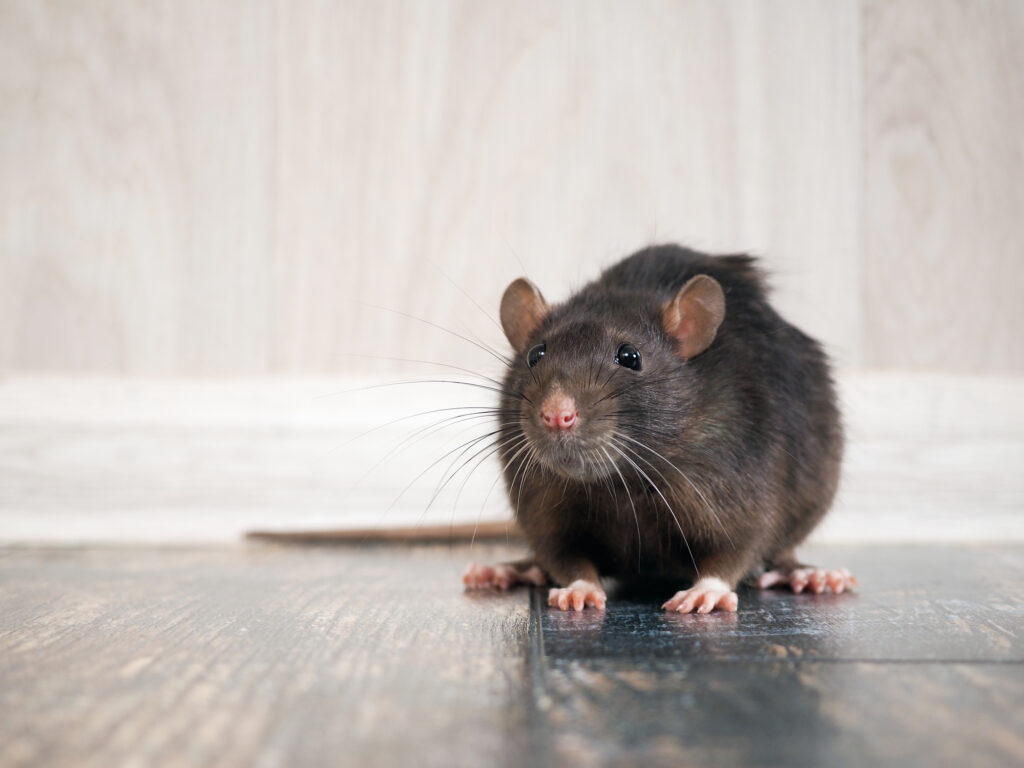What Sort of Damage Do Rodents Cause? Understanding Their Destructive Impact

When it comes to homeownership, few words cause instant dread like “rodent infestation.” Rodents can cause significant damage, proving to be far more than just annoyances. From gnawing through essential components of your home, contaminating your food, to even presenting potential fire hazards, these unwelcome guests can create chaos in surprising and often costly ways. So, what sort of damage do rodents cause?
Understanding Rodent Damage
Anyone who has heard the skittering sounds of rodents in their walls can tell you one thing: a rodent problem left unchecked is trouble, often in the form of significant structural damage. Rodents with sharp teeth need to gnaw. Nothing in the home is safe from these relentless creatures, but they do have their preferred chew points.
Electrical Wiring
Electrical wiring often attracts rodents like a magnet. This attraction to gnaw on electrical wire often leads to a host of issues, including electrical malfunctions, short circuits, sparks, and in worse-case scenarios, electrical fires. This causes significant risks to your property and your family’s safety. In fact, rodents gnawing on electrical wiring are cited as a significant reason behind many unidentified fires across the United States.
Insulation Damage
Rodents often burrow into insulation to create nests, which can lead to several issues. When rodents chew through or remove insulation, it loses its effectiveness, leading to higher energy bills as your heating and cooling systems have to work harder to maintain a comfortable temperature. Damaged insulation can also cause moisture problems, as condensation can build up without proper insulation, potentially leading to mold growth and water damage. Additionally, rodents nesting in insulation often leave behind droppings and urine, creating unpleasant odors and posing health risks.
Plastic Pipe Damage
Rodents gnawing on plastic pipes can cause severe damage, leading to a range of problems. Gnawed holes in plastic pipes can result in water leaks, causing water damage to walls, floors, and ceilings, and potentially leading to costly repairs. Damaged pipes can also lead to reduced water pressure, affecting the efficiency of your plumbing system. Water leaks can create an environment for mold growth, posing health risks to those in your home. Persistent water leaks can weaken the structural integrity of your home, leading to significant and costly damage over time.
Structural and electrical damages are not the only concerns. Rodent droppings and urine can contaminate your living spaces, posing potential health risks and leaving signs of unwanted visitors.
Rodent Species: Types and Their Unique Damages
Did you know that several rodent species call the United States, including West Texas, home? Here, we’ll take a closer look at some of the most common culprits and explore how each can contribute to your rodent problem.
Roof Rat
Let’s start with the Roof Rat. With an attraction for high places, these nocturnal rodents live up to their name and prefer dwelling in the upper parts of buildings. Known to be excellent climbers, they can cause significant damage to your wiring harness and insulation in your attic, not to mention finding rat droppings in unexpected places.
Norway Rat
The Norway Rat is a burrowing species that isn’t quite as adventurous as their roof-loving counterparts but can be equally damaging. Often found in basements or lower parts of buildings, Norway rats are known for gnawing on plastic pipes and causing water leakage issues.
House Mouse
The house mouse is a common rodent found in many homes. Smaller than rats, these mice can squeeze into even tighter spots, making them adept at infiltrating various areas of your home. House mice are not only a nuisance due to their ability to gnaw on anything from your food supply in the pantry to the wires near your computer desk, but they also pose health risks by contaminating food and surfaces with their droppings.
Deer Mouse
The deer mouse is another small rodent known for its agility. While they also prefer to stay closer to the ground, deer mice are skilled climbers when necessary. Similar to house mice, they can access tight spaces and cause damage by gnawing on household items. Deer mice are particularly concerning because they can carry hantavirus, which can be transmitted to humans through contact with their droppings, urine, or saliva.
Understanding that different species cause unique sorts of damage can help identify the nature of your rodent problem and form a more precise plan of action to address it.
Health Risks from Rodents
Besides causing physical damage to your home, rodents also cause severe health risks to those in your home. These health hazards can sometimes be more alarming than the financial strain of fixing structural damage. One of the primary health risks associated with rodents is diseases.
Direct Contact
Rodents are known to transmit several diseases, such as:
Indirect Contact
While direct contact with these little critters is risky, indirect contact can be equally harmful.
There’s Lymphocytic Choriomeningitis, for instance, commonly associated with the house mouse. You can get infected with this rodent-borne viral infectious disease through exposure to the mouse’s urine or droppings.
Certain rats and mice also carry Lassa Fever, which can be contracted through contact with urine and droppings. While cases of Lassa Fever in the United States are rare, keeping an infestation in check ensures these risks remain nonexistent.
Keep in mind that these diseases come with severe symptoms and can be lethal if not treated timely or appropriately.
Preventing a Rodent Infestation
As worrying as a rodent problem can seem, it’s important to remember that these situations are manageable, and preventive measures are available to lessen your chances of dealing with one in the first place.
Securing Entry Points
Rodent exclusion involves securing the entry points that rodents may use to access your home. Pay close attention to gaps or cracks in walls, doors, windows, vents, and especially where utilities enter the house. These critters can squeeze through shockingly small openings. Seal these gaps with materials like steel wool, caulk, or hardware cloth to prevent entry.
Eliminate Food Sources
Another preventive measure is to eliminate their food source. Keep your kitchen, pantry, and dining areas clean without any leftovers that might attract these unwelcome guests—store food in sealed containers and regularly empty trash bins. Ensure your home environment is not welcoming to rodents by cleaning up spills and storing pet food securely.
Maintain Cleanliness
Maintaining overall cleanliness in and around your home is crucial. Clutter provides hiding spots for rodents, so keep storage areas, basements, and attics organized and clean. Regularly inspect and clean behind appliances where crumbs and spills might go unnoticed.
Professional Pest Control Services
Bug Tech tackles rodent problems inside and outside your home. Experts start by placing bait stations around the exterior perimeter to attract rodents with small, dark entry holes they naturally seek out. Once inside, the rodents consume bait that dehydrates them, driving them away from your home in search of water.
Our technicians set traps and bait in strategic locations if rodents are already indoors. Experts then schedule regular visits to monitor and maintain these traps. You can help prevent future issues by sealing pet food and other potential food sources in airtight containers.
How Bug Tech Can Help
Despite our best efforts, rodents sometimes find a way into your home. Dealing with a rodent infestation is best left in the hands of professional pest control services like Bug Tech.
The best way to deal with rodent damage is to stop rats before they get into your home. Prevention is key—blocking entry points and removing attractants can save you from costly repairs. If rats have already found a way inside, acting quickly is crucial. Contact the professionals at Bug Tech to eliminate the problem and prevent future infestations effectively. Don’t wait until the damage is done; let Bug Tech help keep your home rodent-free.
